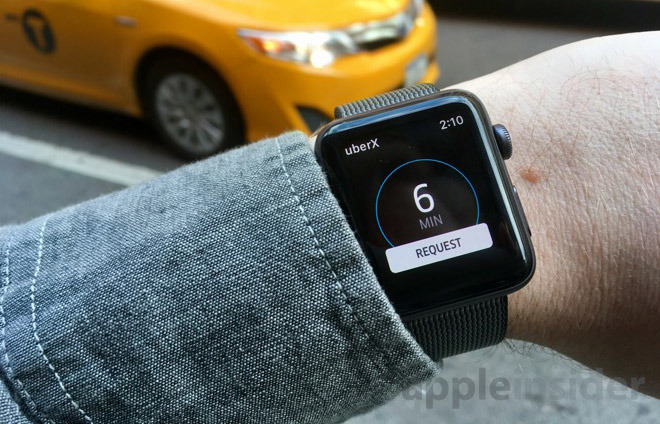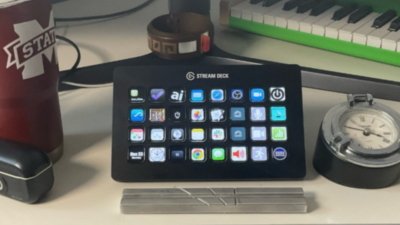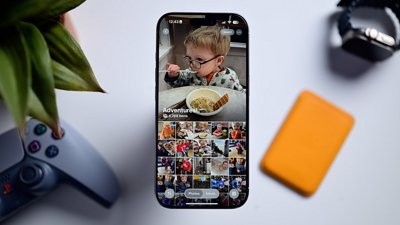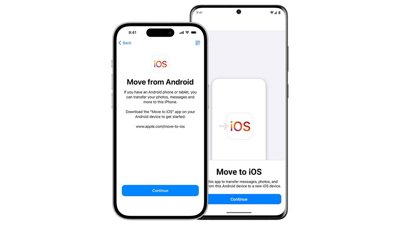Well-connected analyst Ming-Chi Kuo believes Apple Watch sales will decline in 2016 despite the launch of a revamped Apple Watch Series 2 and price cuts for the refreshed first-gen model, now called Apple Watch Series 1.
In a note to investors obtained by AppleInsider, Kuo cuts 2016 Apple Watch shipping estimates 15-25 percent for Apple's latest smartwatch lineup, which includes both Apple Watch Series 1 and Series 2 devices. Projections for Apple Watch Series 1, which now features an enhanced S2 SiP processor, are the main driver for Kuo's downward revision.
Shipping estimates for the Series 2 were raised, but at less than 10 percent are unable to make up for the expected Series 1 slowdown.
The analyst is revising overall shipping estimates from 10 to 10.5 million units down to 8.5 to 9 million units for the entire Apple Watch line. By comparison, Apple shipped 10.4 million Apple Watch units during eight months of availability in 2015, Kuo says.
According to Kuo, Apple Watch faces four structural challenges: a lack of killer applications; inadequate battery life; heavy reliance on iPhone; and likelihood that multi-touch will not be the best UI solution for wearable devices. The last concern is peculiar considering Apple Watch has never supported multi-touch input, though Kuo might be referring to potential future iterations of the product.
"This suggests that sales of the new Apple Watch models are indeed driven by hardcore Apple (US) fans, first-generation replacement demand and niche demand, rather than by the mass market," Kuo writes, adding that collaborations with big retail brands, namely Nike and Hermes, are unlikely to increase demand.
Though Apple made internal improvements debuted with Series 2, including a "swim-proof" chassis and the addition of advanced components like a faster processor and GPS radio, the overall aesthetic remains unchanged from last year's model.
Apple is competing in a highly competitive wearables market, one dominated by less capable devices marketed by the likes of Fitbit. Whereas Apple Watch is a multifunction smartwatch, wearable fitness products do very few things, but they do them well.
Fitbit, in particular, is taking a page out of Apple's book with its wearable lineup. The fitness trackers are designed for, and marketed to, the mass market.
"We believe Fitbit's products can be likened to the iPod for their minimalist key functionality and outstanding design," Kuo says.
In this scenario, Apple Watch is an analog of the early smartphone before iPhone disrupted the scene. Kuo backs up his thesis with numbers from an in-house survey that shows Fitbit thriving in the second half of 2016 and through 2017, figures that suggest no negative impact from Apple Watch.
 Mikey Campbell
Mikey Campbell







-m.jpg)






 William Gallagher
William Gallagher
 Amber Neely
Amber Neely
 Christine McKee
Christine McKee
 Andrew O'Hara
Andrew O'Hara

 Sponsored Content
Sponsored Content
 Charles Martin
Charles Martin










46 Comments
Eh, fuck you Kuo. Sick and tired of these dipshits talking out of their ass.
If it's driven by hardcore fans and not the mass market - then the device would see high replacement for 1st gen wearers. If it's driven by the mass market, then the device would see a spur by the relatively cheaper "series 1" watch. The reality is that it's going to be a mixture of both, which is why Apple released both - thus one should realistically see better than last year sales, and due to halo and trend growth: possibly even better than 1st year sales.
So he pushes Fitbit while badmouthing Apple Watch. Of course, there's nothing Apple or the SEC can do about his statements, although I'd love to see his paid investors go after his when he's wrong. This is the problem with investment, everybody guesses and nobody is held responsible for anything. Of course, AI could just as easily not give this guy any space of their website but they always do.
Kind of surprising to see this prediction. I'd expect Series 2 sales to be great. The extra bit of water proofing and GPS were the only things lacking in the original, IMO. Not sure it's necessarily worth upgrading from S0, but it's a great device for sure. I love my S0 and the battery life is better than I was expecting
I am agreeing with the Freshmaker. I waited until it went on sale around Christmas and I'm very happy with my Apple Watch. I would expect good sales of the new one. Especially with watchOS 3, even the first one doesn't really lack anything I want. I don't have problems with the battery life. I don't have problems with the lack of GPS. And multitouch never occurred to me.